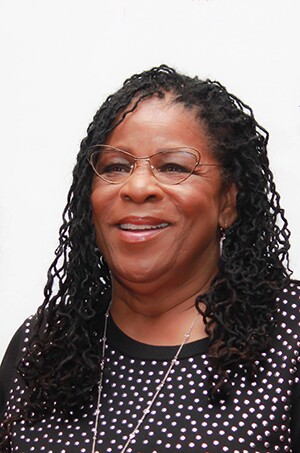Susan Burton: A New Way of Life


For nearly 20 years, Susan Burton has helped thousands of women transition from prison back to life in their community. In 1998, she started A New Way of Life, a non-profit organization that helps women handle housing, social and legal issues that can arise after their release. The group provides transitional homes, legal assistance and helps women reunite with their children. In 2010, Burton herself was named a CNN Hero for her efforts. More recently, writer Michelle Alexander, author of the book "The New Jim Crow: Mass Incarceration in the Age of Colorblindness," compared Burton to Harriet Tubman for her efforts in social justice.
Burton's mission was inspired by her own struggle. Following the death of her young son, Burton turned to substance abuse. During the bulk of the 1980s and '90s, she had been incarcerated six different times. After successfully finding treatment through a program in Santa Monica, she decided to build an organization to help women in South L.A. find the care and support that they needed. Burton's story, and the stories of women she helps, points to the inequities of the justice system when it comes to treatment for drug abuse.
Last May, "Becoming Ms. Burton: From Prison to Recovery to Leading the Fight for Incarcerated Women," by Burton and Cari Lynn, hit bookstores. In an excerpt made available through Starbucks, the authors make it clear that something is wrong. "The Thirteenth Amendment to the U.S. Constitution abolished slavery other than in prisons-- but it was a lie that you regained your freedom once you left the prison gates," they write. "Upon release and for the rest of your life, you faced a massive wall of No." As an example, Burton shares the story of a woman she helped who is incarcerated after leaving a child unattended in a car while she ran into a store. As Burton explains, the woman could not regain custody of her children unless she had permanent housing and that wouldn't be possible without a job. But, when you have prison on a resume, jobs are hard to get.
The Los Angeles Times reported in July that the Los Angeles County Board of Supervisors approved motions for "fair chance ordinances." In other words, employers might not be able to immediately reject an application because a candidate checked the box noting a past conviction. Los Angeles City Council voted in favor of such a law last September.
But, the problem runs deeper than job applications. In "Invisible No More" by Andrea Ritchie, an excerpt of which recently ran on Longreads, the author highlights the statistics showing how women of color have been affected by the War on Drugs. Ritchie notes that, between 2010 and 2014, women's drug arrests have increased at a rate higher than that of men. Although these percentages aren't as high as the arrests from the mid-'80s through the mid-90s, it's still cause for concern. "The drug war continues to shape policing practices and devastate the lives and families of women of color," Ritchie writes, "and is poised to intensify once again."
Incarceration can become a cycle. Burton spoke about her experience with the system in an interview with NPRlast May. Burton had tried to change her life, but the kind of help she needed wasn't available in her neighborhood. It wasn't until Burton was able to get into a treatment center in Santa Monica that she was able to work towards a better future. And it’s because she saw the difference between how issues like drug abuse are handled in upscale communities that she launched her own program. "I also began to realize that people in Santa Monica didn't go to jail for possession of drugs like we did in South L.A.," she told NPR. That's a sentiment she also shared in an interview with Tavis Smiley from last May and in other interviews. If Burton was going to help other women in her community find the kind of assistance that she needed, and ultimately got, she was going to have to build it herself. So she did, beginning with her own savings.
Burton's personal journey is both heartbreaking and inspiring and the work that she continues to do is profoundly important. But, what can be done to fix a system that favors incarceration over treatment? Burton will discuss on "Town Hall."
This article was originally published on August 8, 2017.





